
Joseph Rizzo | |
|---|---|
| Born | |
| Occupation | Philosophy |
Joseph Rizzo (18th century) was a minor Maltese philosopher and theologian who probably specialised in logic. [1]

Joseph Rizzo | |
|---|---|
| Born | |
| Occupation | Philosophy |
Joseph Rizzo (18th century) was a minor Maltese philosopher and theologian who probably specialised in logic. [1]
Rizzo was a diocesan priest. He studied theology and was a professor of philosophy. He taught philosophy in Malta at least between 1781 and 1782. No other information is known as yet about his personal life, and no portrait of him seems to have survived.
Though Rizzo was no exceptional thinker, his interest and prowess in philosophy is not to be shunned. The only extant writing known to be his is called De Essentia Philosophiæ (Concerning the Essence of Philosophy), [2] and is still in manuscript form. [3] The manuscript, which is in Latin and contains 171 folios, survived as part of the private collection of Fortunatus Panzavecchia. It is not written in Rizzo’s own handwriting, but that of Joseph Ciantar, one of Rizzo’s students. In fact, the document is a report of Rizzo’s lectures given in 1781 through 1782. It is unknown where the lectures were delivered. The division of the work is in the typical style of Scholasticism; in disputes and questions.
The extant manuscript is made up of a nine booklets. However, these probably formed only part of the whole document or documents, for at the beginning it states that it is the first volume (suggesting that other volumes would follow). Unfortunately, the other parts seem to have gone missing. In fact, since the subject-theme of the extant booklets solely concern logic, and the general title certainly suggests that the writing is about more than just logic, it might be concluded that other parts, dealing perhaps with metaphysics, physics, etc., are lost or misplaced.
One of the extant booklets has the title Controversiæ Logices (Controversies concerning Logic). Here Rizzo discusses various points which had been still unresolved during his time. Rizzo states that logic may be divided into institutiones (decided questions) and controversias (undecided questions). One of the latter, on which a discussion was on-going, asked whether Adam had a philosophy. As with others, Rizzo deals with this ‘controversy’ first generally and then particularly. In this particular section, Rizzo decides that Adam did indeed have a philosophy of his own, and gives his arguments to uphold such a doctrine.
The work starts off with an introduction on the nature of philosophy. The rest of the document, apart from the section mentioned above, successively deals with the term ‘logic’; the origins, recognition and growth of logic; and the different schools (‘sects’ he calls them) of logic. Rizzo also deals with the definition of logic, the nature of the work done by the human intellect, and also with the mental (or logical) operations involved in rational mistakes, the source of their processes, and their possible remedies.
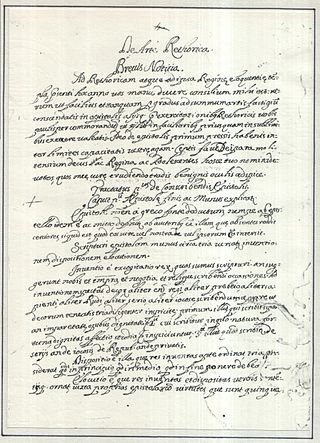
Dominic Borg was a minor Maltese philosopher who specialised in logic and rhetoric.

Thomas Cauchi was a minor Maltese philosopher who specialised in law.
Saverius Pace was a minor Maltese philosopher who specialised in physics.
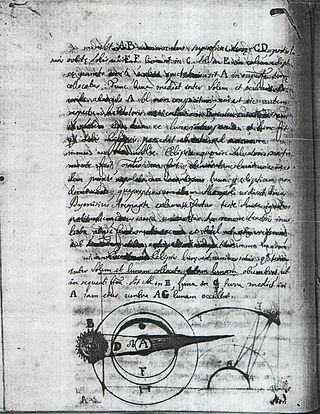
Henry Regnand was a minor Maltese philosopher who specialised mainly in logic and metaphysics.
George Sagnani was a minor Maltese philosopher who specialized mainly in ethics and morals.
Constance Vella (1687–1759) was a major Maltese philosopher who specialised mainly in physics, logic, cosmology, and metaphysics. Vella's speciality is that, despite being a Scholastic, he was not an Aristotelic-Thomist one, but rather an Aristotelic-Scotist philosopher, that is more in the line of John Duns Scotus.
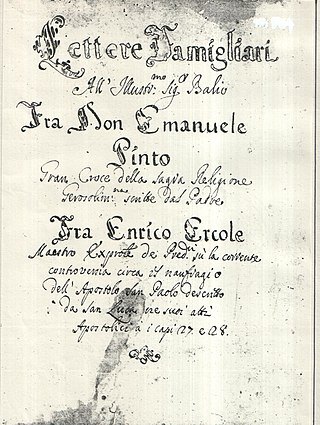
Henry Ercole was a minor Maltese mediaeval philosopher who specialised mainly in ethics and logic. He enjoyed great esteem from his contemporaries, both as an administrator and a philosopher.
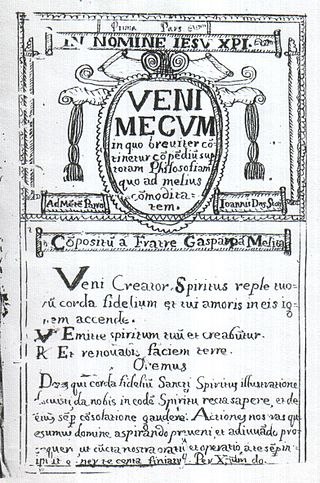
Gasper Grima (c.1680–1745) was a minor Maltese philosopher who specialised mainly in metaphysics and logic.

John Constance Parnis (1695–1735) was a major Maltese mediaeval philosopher who specialised mainly in metaphysics, physics, and logic.

Stefano Pace (1695–1735) was a minor Maltese mediaeval philosopher who specialised mainly in physics.

Justus Azzopardi was a minor Maltese philosopher. His area of specialisation in philosophy was chiefly metaphysics. No portrait of him is known to exist as yet.

Gaetanus Matthew Perez was a minor Maltese philosopher. His area of specialisation in philosophy was chiefly ethics. No portrait of Perez is known to exist so far.

Fortunatus Victor Costa was a minor Maltese philosopher who specialised in metaphysics.

Dominic Bezzina was a minor Maltese philosopher who mainly specialised in physics. He also dealt with logic.
Jerome Inglott (1776–1835) was a Maltese philosopher and theologian. His areas of specialisation in philosophy were chiefly metaphysics and ontology. He held the Chair of Philosophy at the University of Malta (1822–27), and was one of the Philosopher-Rectors at the same university (1826–33).

S. Debono was a Maltese scientist, linguist and minor philosopher. In philosophy he mostly specialised in ontology. His exact Christian name is unknown. Neither do we possess as yet a portrait of him.
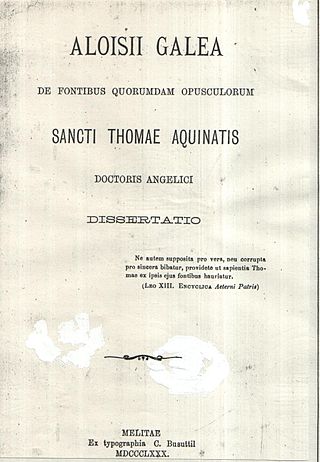
Aloisio Galea (1851–1905) was a Maltese theologian and minor philosopher. He specialised mostly in moral philosophy.
Raphael Debono was a Maltese minor philosopher. In philosophy he mostly specialised in logic. No portrait of him is known to exist.
Vincent Riolo is a Maltese philosopher mostly interested and specialised in logic and the philosophy of language.
Michael Zammit is a Maltese philosopher, specialised in Ancient and Eastern philosophy.